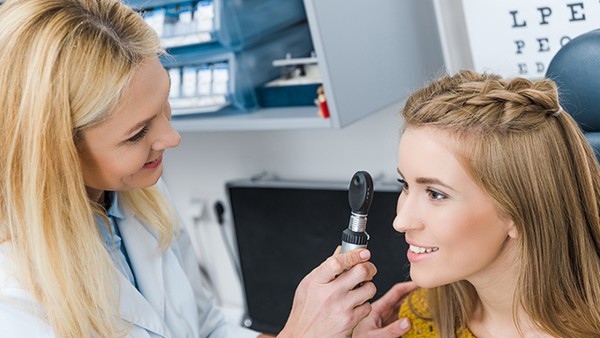Causes of Rhinitis in Children

Rhinitis is a common condition that causes inflammation of the nasal passages. It can be caused by a variety of factors, including allergies, infections, and irritants. In children, rhinitis is often caused by allergies to pollen, dust mites, or pet dander.
Allergic Rhinitis
Allergic rhinitis is the most common type of rhinitis in children. It is caused by an allergic reaction to an allergen, such as pollen, dust mites, or pet dander. When a child with allergic rhinitis comes into contact with an allergen, their body produces antibodies called immunoglobulin E (IgE). These antibodies bind to cells in the nose, which then release histamine and other inflammatory mediators. These mediators cause the blood vessels in the nose to dilate and the nasal passages to become inflamed.
Symptoms of allergic rhinitis include:
Sneezing
Runny nose
Itchy nose
Stuffy nose
Watery eyes
Scratchy throat
Infectious Rhinitis
Infectious rhinitis is caused by a virus, bacteria, or fungus. The most common cause of infectious rhinitis in children is the common cold virus. Other viruses that can cause infectious rhinitis include the flu virus and the adenovirus. Bacteria that can cause infectious rhinitis include Streptococcus pneumoniae and Haemophilus influenzae. Fungi that can cause infectious rhinitis include Aspergillus and Candida.
Symptoms of infectious rhinitis include:
Sneezing
Runny nose
Stuffy nose
Fever
Chills
Body aches
Headache
Fatigue
Irritant Rhinitis
Irritant rhinitis is caused by exposure to an irritant, such as smoke, dust, or chemicals. Irritants can damage the cells in the nose and cause inflammation. Symptoms of irritant rhinitis include:
Sneezing
Runny nose
Stuffy nose
Burning or stinging sensation in the nose
Itchy nose
Watery eyes
Diagnosis of Rhinitis
The diagnosis of rhinitis is based on the child's symptoms and a physical examination. The doctor may also order allergy testing to determine if the child has allergies.
Treatment of Rhinitis
The treatment of rhinitis depends on the cause.
Allergic rhinitis: Treatment for allergic rhinitis includes avoiding allergens, taking antihistamines, and using nasal sprays.
Infectious rhinitis: Treatment for infectious rhinitis includes rest, fluids, and over-the-counter medications. Antibiotics may be necessary if the infection is caused by bacteria.
Irritant rhinitis: Treatment for irritant rhinitis includes avoiding irritants and using nasal saline sprays.
Prevention of Rhinitis
There is no sure way to prevent rhinitis, but there are steps that can be taken to reduce the risk of developing the condition. These steps include:
Avoiding allergens
Washing hands frequently
Staying away from sick people
Getting vaccinated against the flu and other respiratory infections
Using a humidifier in the home
Keeping the home clean and free of dust and pet dander
Rhinitis is a common condition that can cause a variety of symptoms. The treatment of rhinitis depends on the cause. There are steps that can be taken to reduce the risk of developing rhinitis.
Allergic Rhinitis
Allergic rhinitis is the most common type of rhinitis in children. It is caused by an allergic reaction to an allergen, such as pollen, dust mites, or pet dander. When a child with allergic rhinitis comes into contact with an allergen, their body produces antibodies called immunoglobulin E (IgE). These antibodies bind to cells in the nose, which then release histamine and other inflammatory mediators. These mediators cause the blood vessels in the nose to dilate and the nasal passages to become inflamed.
Symptoms of allergic rhinitis include:
Sneezing
Runny nose
Itchy nose
Stuffy nose
Watery eyes
Scratchy throat
Diagnosis of Allergic Rhinitis
The diagnosis of allergic rhinitis is based on the child's symptoms and a physical examination. The doctor may also order allergy testing to determine if the child has allergies.
Treatment of Allergic Rhinitis
The treatment of allergic rhinitis includes avoiding allergens, taking antihistamines, and using nasal sprays.
Avoiding allergens: The best way to prevent allergic rhinitis is to avoid allergens. This can be difficult, but there are steps that can be taken to reduce exposure to allergens. For example, children with allergies to pollen should stay indoors on days when the pollen count is high. They should also avoid playing in grassy areas and mowing the lawn. Children with allergies to dust mites should use 锌褘谢械褋芯褋褘 with HEPA filters. They should also wash their bedding in hot water and use a dehumidifier to reduce the humidity in their home. Children with allergies to pets should avoid contact with pets.
Antihistamines: Antihistamines are medications that block the effects of histamine. This can help to relieve symptoms of allergic rhinitis, such as sneezing, runny nose, and watery eyes. Antihistamines are available over-the-counter and by prescription.
Nasal sprays: Nasal sprays are medications that are sprayed into the nose. Nasal sprays can help to reduce inflammation and congestion. Nasal sprays are available over-the-counter and by prescription.
Infectious Rhinitis
Infectious rhinitis is caused by a virus, bacteria, or fungus. The most common cause of infectious rhinitis in children is the common cold virus. Other viruses that can cause infectious rhinitis include the flu virus and the adenovirus. Bacteria that can cause infectious rhinitis include Streptococcus pneumoniae and Haemophilus influenzae. Fungi that can cause infectious rhinitis include Aspergillus and Candida.
Symptoms of infectious rhinitis include:
Sneezing
Runny nose
Stuffy nose
Fever
Chills
Body aches
Headache
Fatigue
Diagnosis of Infectious Rhinitis
The diagnosis of infectious rhinitis is based on the child's symptoms and a physical examination. The doctor may also order tests to determine the cause of the infection.
Treatment of Infectious Rhinitis
The treatment of infectious rhinitis depends on the cause.
Viral rhinitis: Viral rhinitis is usually treated with rest, fluids, and over-the-counter medications. Antibiotics are not effective against viral infections.
Bacterial rhinitis: Bacterial rhinitis is treated with antibiotics.
Fungal rhinitis: Fungal rhinitis is treated with antifungal medications.
Irritant Rhinitis
Irritant rhinitis is caused by exposure to an irritant, such as smoke, dust, or chemicals. Irritants can damage the cells in the nose and cause inflammation. Symptoms of irritant rhinitis include:
Sneezing
Runny nose
Stuffy nose
Burning or stinging sensation in the nose
Itchy nose
Watery eyes
Diagnosis of Irritant Rhinitis
The diagnosis of irritant rhinitis is based on the child's symptoms and a physical examination. The doctor may also order tests to determine the cause of the irritation.
Treatment of Irritant Rhinitis
The treatment of irritant rhinitis includes avoiding irritants and using nasal saline sprays.
Avoiding irritants: The best way to prevent irritant rhinitis is to avoid irritants. This can be difficult, but there are steps that can be taken to reduce exposure to irritants. For example, children should avoid exposure to smoke, dust, and chemicals. They should also wear a mask when they are exposed to these irritants.
Nasal saline sprays: Nasal saline sprays can help to remove irritants from the nose and reduce inflammation. Nasal saline sprays are available over-the-counter.
The above is all the content that the editor wants to share with you. I sincerely hope that these contents can bring some help to your life and health, and I also wish that your life will be happier and happier.
Topic: #of #causes #rhinitis- • Detailed explanation of the causes of neonatal hypoxic-ischemic encephalopathy
- • Four major causes of frigidity among new mothers after giving birth!
- • Main symptoms of pulmonary tuberculosis in children
- • Four sequelae of caesarean section mothers
- • The smell of armpit sweat is not body odor but body odor














